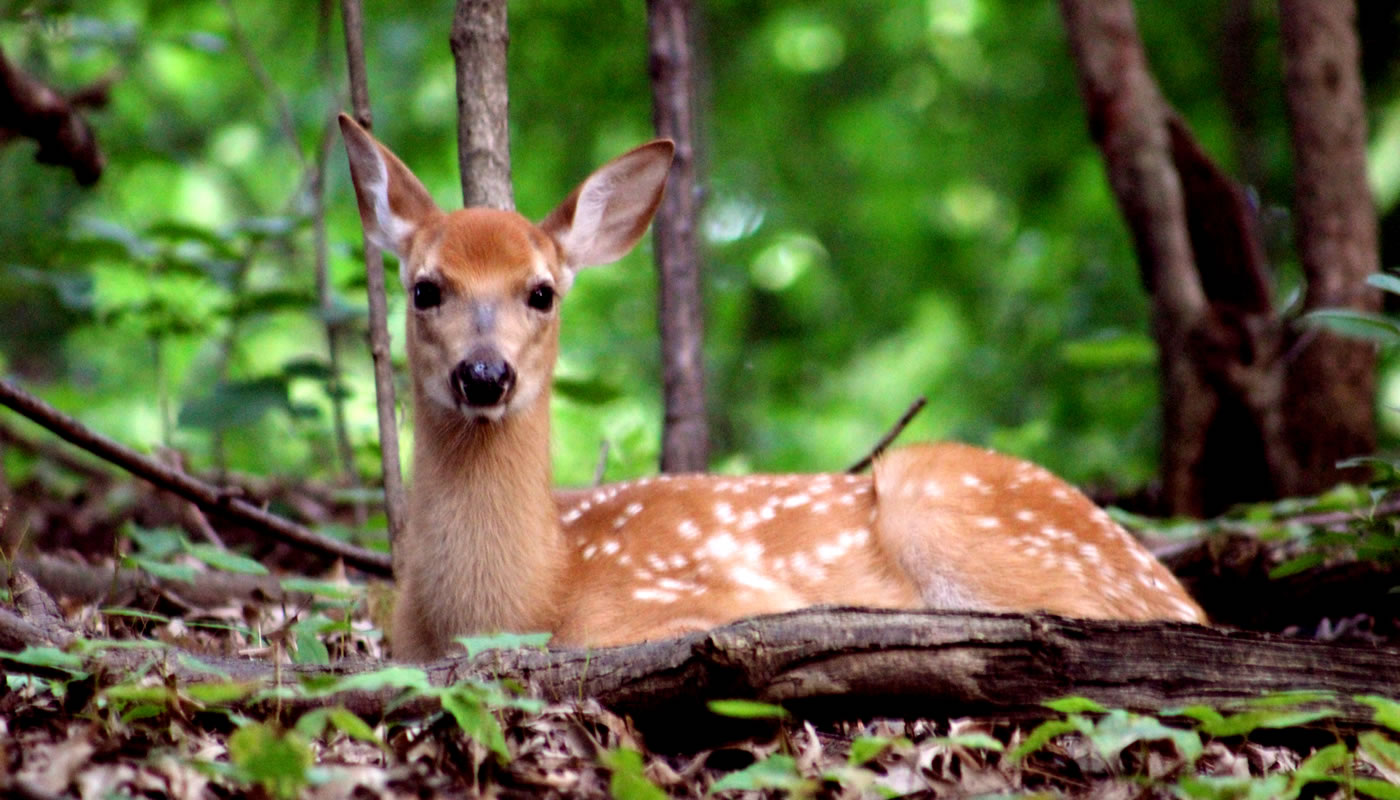You’ve come across a wild animal that appears to be in distress. It could be sick or injured or it might be a youngster without its mother. What should you do? Most often the best answer is: Nothing.
Our resident wildlife may suffer from a variety of problems, some of which may result from human activity. There are also many natural causes of wildlife distress. Life in the wild may appear cruel; wild animals die every day. It might seem cruel to ignore an animal found in a compromised situation. The injured, sick, and dead stay in the food web as valuable resources for other animals. Without this natural reduction of numbers, overpopulation can result in an increase of disease or in depletion of food or other resources needed for survival.
A young animal found without its mother may evoke a great deal of sympathy but should still be left alone. Wild babies are very rarely abandoned by a parent. Factors such as sibling competition, weather or illness can cause a young individual to be on its own. Sometimes it is a normal part of development for a young animal to be alone and under these circumstances the parent is nearby and providing proper care.
It is a harsh fact of life in the wild that most young of wild species will not survive to adulthood. Those that die will end up as food for other animals, often young ones just learning to find food for themselves. As unpleasant as it might seem to some of us, it is a natural process that allows wild populations to thrive.
Handling wild animals can be dangerous. A threatened animal will defend itself any way it can, and should be handled only by those trained to do so. Animals are afraid of us and can’t understand that we’re trying to help them. You should NEVER try to care for a wild animal yourself. Proper care requires training and experience, and unskilled attempt, no matter how well intentioned, will likely do more harm than good.
Possession of wild species without special permits issued by the Illinois Department of Natural Resources and the U.S. Fish and Wildlife Service is illegal. Keeping a wild animal as a pet is illegal in all circumstances.
So what can you do? You might try to provide some hiding cover if it can be done safely. Pets and children need to be kept away from the animal. Notify police if it appears that the animal may be a threat to public safety.
Keep your pets indoors or under control at all times. Free-roaming dogs and cats are skilled hunters and will kill out of instinct even though they don’t need to do so for food. Allowing pets to run loose is not only a danger to wildlife, but also puts them at risk for falling prey to wild predators.
For further information on dealing with wildlife situations, please visit the Illinois Department of Natural Resource’s Wildlife Illinois website.
For information about living with coyotes in Cook County, visit our Frequently Asked Questions page on coyotes.

